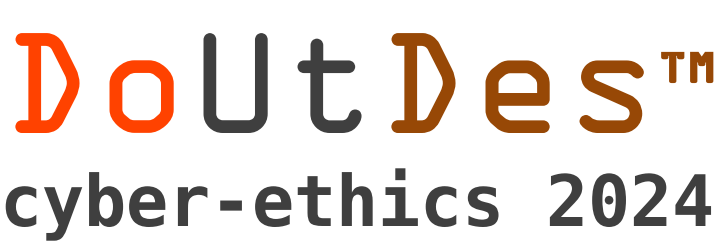Cyber Safety by DoUtDes™ Cyber-Ethics
In the age of hyperconnectivity and uncertainty, we need to re-examine commonly used concepts but born in times of linear and analog logic.
With DoUtDes™ Cyber-Ethics we completed an inventory, which culminated in a novel approach to cyber-ethics and cybersecurity in
digital times and the frontiertech age. We all have witnessed with awe how cyber crimes have been been skyrocketing, and sense an explosion in 2024; it thus became mandatory for our research team to reconsider the current concept of safety, intimately linked to digital trust. Peripheral impacted concepts are cybersecurity, and economic intelligence.
Fact is that most strategies are focusing on the management or avoidance of risk or error.
But what if safety needs to be rethought as an account of collective as well as individual agency?
Rather than an ad hoc elimination of “fragility” or “errors”, safety becomes a dynamic act of Just-In-Time (JIT) communication and an
interdisciplinary mesh of competencies.
Gene I. Rochlin (1938-2018) – Professor Emeritus in the Energy and Resources Group at the University of California, Berkeley.
“To the extent that regulators, systems designers, and analysts continue to focus their attention on the avoidance of error and the control of risk, and to seek objective and positivistic indicators of performance, safety becomes marginalized as a residual property. This not only neglects the importance of expressed and perceived safety as a constitutive property of safe operation, but may actually interfere with the means and processes by which it is created and maintained.”
With DoUtDes™ Cyber-Ethics, to fully be safe, safety needs a systemic approach fueled by ethical catalysts.
Stressing on the interactive dynamic between operators and managers, linking upstream and downstream, connecting engagements,
intermeshing integrated responsibilities and collectively allocated resources within operational and organizational architectures.


